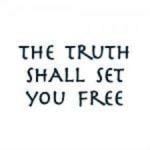I recently finished reading Hilary Mantel’s long-awaited The Mirror and the Light, the final entry in a trilogy of novels about Thomas Cromwell, the consigliere and fixer for Henry VIII. Cromwell is the son of a blacksmith, a violent and abusive father whom Cromwell flees as a young teenager. Over many years as a soldier, a merchant, and ultimately a self-made lawyer, Cromwell begins to make his presence known at court through his sharp insights and practical wisdom.
Those of noble and aristocratic birth did not appreciate the rising influence of this low-born peasant. Early in the first novel in the trilogy, Wolf Hall, Thomas Howard, Duke of Norfolk and one of the most powerful and influential men in England, expresses his annoyance at Cromwell’s ubiquitous presence at court:
Damn it all, Cromwell, why are you such a . . . person? It isn’t as if you could afford to be. He [Cromwell] waits, smiling. He knows what the duke means. He is a person, he is a presence.
Later in the same chapter, Howard accuses Cromwell once again of being a “person,” something that those who know their place should not aspire to. It’s an interesting idea, both aspiring to be a person and considering what happens when one choose snot to pursue personhood.
A couple of weeks ago, I was greeted on Facebook by a picture of my dachshund Frieda who died a year and a half ago at the age of thirteen. As Facebook regulars know, your feed will remind you of pictures you have taken in the past—this one was from two years ago, shortly after she had some teeth removed, basking in the sun as she lounged on a favorite chair by our dining room window. My caption for the picture two years ago was “Frieda without her teeth in.” She died of heart problems five months later—few days go by without my thinking about and missing Frieda.
As Facebook regulars know, your feed will remind you of pictures you have taken in the past—this one was from two years ago, shortly after she had some teeth removed, basking in the sun as she lounged on a favorite chair by our dining room window. My caption for the picture two years ago was “Frieda without her teeth in.” She died of heart problems five months later—few days go by without my thinking about and missing Frieda.
With a tear or two in my eye, I shared the picture on my feed, saying “I hate it when Facebook does this. Just when I spend a few days without missing Frieda, I’m reminded. This picture, taken several weeks after a few of her teeth were removed (hence giving her this perpetual smile), was taken five months or so before she died.” A few people expressed their sympathy with a word and an emoticon or two, but Jeanne, who misses Frieda as much as I do, hit the nail on the head.
Friedalina, so full of personality. Such a person—truly. Made her wishes known. Knew when you weren’t feeling well and wouldn’t leave your side. You would never interfere with her sun bathing, though, or else you would get the look.
For a decade of her years with us, Frieda was the alpha dog in a three-dog pack at our place. Although all three canines were loved and spoiled, we always said that “Bean and Winnie are dogs, but Frieda is a person.” So how does someone rise above their biological wiring and natural limitations in order to become a person?
Last fall, in the good old days when I still got to teach classes in front of real, flesh-and-blood human beings, I had the opportunity to lecture, then lead a seminar, on a book that I had not read, let alone taught, for a number of years. Hannah Arendt’s Eichmann in Jerusalem was a centerpiece of our considerations of World War II in the interdisciplinary course I teach in; it is not only a profound meditation on evil in human form, but also is uncomfortably relevant to our contemporary world. And it reveals much about the dangers of failing to be a person.
Arendt’s text emerged from her weekly submissions, as a reporter for The New Yorker Magazine, on the Israeli trial of Adolf Eichmann, one of the last Nazi war criminals to be brought to justice, in Jerusalem in the early 1960s. Eichmann, who had eluded justice for years, was captured by the Israeli Secret Service in 1960 and brought to Jerusalem for trial; he was executed in 1962. In her observations of and reports on the months of trial, Arendt coined the phrase “the banality of evil,” expressing the idea that the most insidious feature of evil is that it is banal, that it embeds itself in an individual and a culture in ways so unremarkable that fail to recognize it for what it is—until it is too late.
Arendt describes Eichmann, one of the fashioners and facilitators of the “Final Solution” that sent millions of Jews and other “undesirables” to their deaths, as anything but the embodiment of evil that one might expect from literature and cinema. There was nothing “devilish” or even remarkable about Eichmann. Rather, he was a bureaucrat, a paper pusher who made the trains run on time—in full knowledge that those trains were filled with people being transported to the death camps. Furthermore, Arendt reported, Eichmann’s testimony at his trial revealed serious shortcomings in his nature.
What he said was always the same, expressed in the same words. The longer one listened to him, the more obvious it became that his inability to speak was closely connected with an inability to think, namely, to think from the standpoint of somebody else. No communication was possible with him, not just because he lied but because he was surrounded by the most reliable of all safeguards against the words and the presence of others, and hence against reality as such.
Eichmann was a man unable to think from the perspective of someone other than himself. He also had a markedly limited vocabulary, consistently using set phrases and words even in inappropriate contexts. This sounds familiar.
At this point, this could turn into a post about the President, about the fact that many of Arendt’s observations about Eichmann fit Donald Trump to a tee. I’m tempted. But shortly after spending a week on Arendt, I had the opportunity to give a lecture on the work of Iris Murdoch; rather than picking the low-hanging Trumpian fruit, here are some of Murdoch’s ideas about how to cultivate the ability to think and to see from the perspective of someone other than yourself. I’m not convinced that Trump is capable of learning to do this, but each of us can. And it might make a big difference.
Iris Murdoch was one of the most celebrated novelists of the twentieth century, as well as an influential philosopher whose work has come back into vogue over the past couple of decades. She was an atheist (so she professed at least), but only in the sense that she did not believe that traditional models of God, along with their religious trappings, were any longer viable in the aftermath of two devastating world wars.
Despite her atheism, however, she believed that in order to live a life of value and goodness, human beings need to focus their attention on something other than themselves. In the absence of God, Murdoch often wrote of the close connection between moral and aesthetic values, as when describing a poet’s evaluation of an artist.
Rilke said of Cezanne that he did not paint “I like it,” he painted “There it is.” One might say here that art is an excellent analogy of morals, or indeed that it is in this respect a case of morals. We cease to be in order to attend to the existence of something else, a natural object, a person in need.
How to engage things as they are rather than as I wish them to be. Remembering that I am not, after all, the center of the universe. Not to stifle the beauty and promise of a day by wrapping it in what Murdoch calls “the avaricious tentacles of the self.” And finding a way, on a daily basis, to rise above or step aside from the ordinary, the routine, and the expected.
In the movie “Hannah Arendt,” Arendt tells a classroom filled with students and faculty that Eichmann’s greatest moral failure was that “he was a human being who refused to be a person.” One way of reading the gospels is as an invitation to be a person, something that is not established by simply being born as a human being. When Jesus invites us to consider the natural world around us—lilies, sparrows, growing crops, the wind—he is asking us to turn our attention toward things other than ourselves. When Jesus consistently challenges us to pay attention to the “least of these,” people falling through the cracks whose plight may seem distant from and unrelated to our own lives, he is calling us to personhood. Be a person—it is both a task and a choice.













